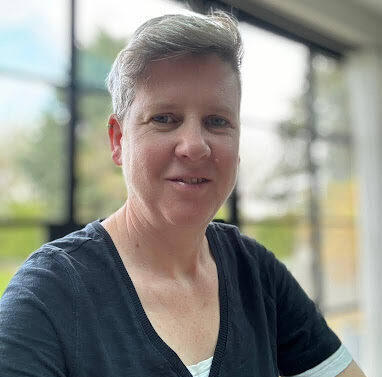Q: Why are people sharing their pronouns?
A: Using correct names and gender pronouns can make a significant difference in someone’s life.
Pronouns are the words we use to refer to ourselves or someone else when not using a name. Gender pronouns specifically refer to people and possessions (she/her/hers, they/them/theirs, ze/zir/zirs, etc.)
The 2022 U.S. Transgender Survey gathered data from 92,329 transgender people 16 years and older in the U.S. and was the largest survey of transgender people ever.
Almost 10% of respondents to the Trans 2022 Survey reported that they were denied equal treatment or services because of the way they identify or express their gender.
Transgender people who reported being addressed with the correct pronouns and names reported lower rates of attempting suicide. While this type of data can’t determine cause and effect, it does suggest that correct pronouns play a role in better mental health among trans and non-binary people. (Non-binary people may feel neither male nor female, both male and female, that their gender is more expansive than what is described by male or female, or that their gender is fluid, moving across a spectrum.)
A staggering 74% of LGBTQ+ people reported that having people in their lives know more about pronouns would be helpful to them. (Trevor Report 2023)
So while stating pronouns may seem like something new and awkward to us, it’s a compassionate act that can make a big difference in someone’s life even if we don’t realize it.
Tips on Pronouns
Let’s
✅ start introducing our pronouns: “Hi, I am Jordan, I use she/her pronouns.”
✅ use a person’s current pronouns, even if we have known them when they used different pronouns, (as a child, in school, or in the workplace).
✅ use the correct pronouns even when the person we’re talking about is not present.
✅ not be afraid of using they/them as a “gender neutral” singular pronoun, even if our elementary/primary school teacher would be rolling over in their grave at our use of “they” as a singular!
✅ make a practice of asking what pronouns people use. And be sure to ask everyone, not just people we think are trans or non-binary! It will help build the habit, and some people may surprise us.
✅ ask about pronouns with simple language “What pronouns do you use?”
✅ avoid asking about preferences. *Our gender isn’t a preference.*
When we use correct pronouns and names, it shows that we respect someone’s personhood and bodily autonomy.
If we mess up, let’s
➡️ not panic! This is new territory for a lot of us. Mistakes are going to happen.
➡️ briefly apologize, correct ourselves, and move on with the conversation. We can say, “Oops sorry, she (or whatever the appropriate pronoun is)” and then move on. (If we ignore the mistake it may communicate that we did it on purpose or don’t care.)
➡️ avoid further commentary. Just move on. It can be tempting to comment on our own intentions or broader positions about trans people after a mistake, but these kinds of comments often produce more harm than good. For example, if we say “I didn’t intend to offend”, they may feel we are minimizing their feelings. If we talk about being an ally of the community, we may be calling attention to someone’s gender in a situation where they would rather just move on.
➡️ notice if someone else is using the incorrect pronouns for another person and gently invite them to course-correct. For example, we can say “Oh, I think it is actually she.” This takes the work off of the trans person to always be correcting.
And of course, let’s continue to educate ourselves and grow our understanding!
We have some helpful resources below.
Asking marginalized people to do the work of promoting progress and change has been a major barrier to moving the needle on women’s rights, gay rights, civil rights, disability rights, and trans rights, too.
Those of us who enjoy some positions of privilege (relative to our contexts) can learn about other marginalized or minoritized populations.
This work starts with us. We all have the power to make a difference and changing our language is one simple step.
Stay curious, stay well,
Those Nerdy Girls&+
Sandy Laping (she/her/hers) & MK Haber (they/them/theirs)
This post was updated from the original written by Nerdy Girl Alumnae Nicole Loew and Stephanie Edmondson on November 18, 2022.
Resources
Podcast Episode on Language and Pronouns with Francis Kuehnle, who taught us most of this content. Thank you, Frankie.
Gender-Neutral Pronouns 101: Everything You’ve Always Wanted to Know
Results from the 2015 U.S. Transgender Survey
Results from the 2022 U.S. Trans Survey
Tracing the history of gender-neutral pronouns
A beginner’s guide to pronouns and using pronouns in the workplace



